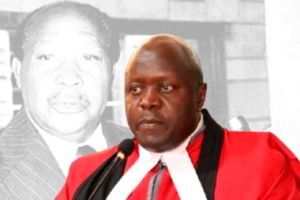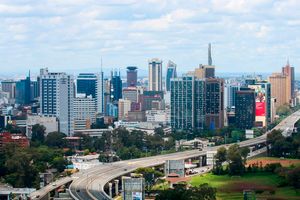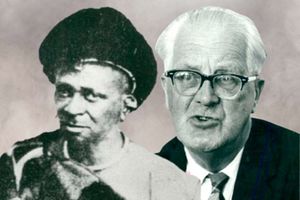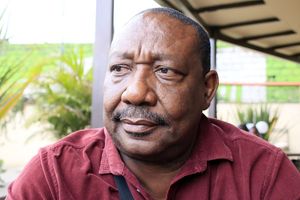
Judge says that Ecobank treated the Mbiyu Koinange estate bank account casually and negligently by allowing withdrawals contrary to a court order issued in 2011 that had stopped the disbursement of the funds.
The High Court has ordered Ecobank to pay the family of former Cabinet Minister Mbiyu Koinange Sh284 million that was illegally withdrawn from his estate’s account by lawyers involved in the succession case.
Justice Erick Ogolla found that the bank treated the account casually and negligently by allowing the withdrawals contrary to a court order issued in 2011 that had stopped the disbursement of the funds.
“There was an express order from the court that the money held at the bank should not be released without prior authorisation from the court. The responsibility of ensuring that the bank account is managed accordingly lies with the bank, to whom a higher threshold of care is expected,” he said.

Former Cabinet minister Mbiyu Koinange.
Stating that the bank owed a duty of care to the beneficiaries of the Koinange estate, the judge ruled that the financial institution was liable and accountable for the loss of the money.
According to the court, this was a case of “wilful negligence,” and the bank’s defence that it was unaware of the court order "reeks of negligence of duty to its customer”. He noted that the bank was obligated to make inquiries before processing any payments.
The money was part of the Sh1.1 billion proceeds from the 2010 sale of Koinange’s land known as "Closeburn Estate Runda".
Court papers show that the signatories to the estate account were advocates and that the account mandate required all signatories to sign jointly.
Koinange’s widow Eddah Wanjiru, who is one of the estate’s administrators, urged the court to order the refund of the money stating that it was held in the estate’s account pursuant to a court order dated July 26, 2011. Through her lawyer Senior Counsel Paul Muite, Ms Wanjiru said the funds were to be shared equally among the estate’s beneficiaries.
However, Mr Muite said Ecobank allowed the entire sum to be withdrawn without a court order and used it to cater for advocates’ payments. He further argued that the account in question was a trust account opened by the estate’s administrators through a court order and that Ecobank required court approval to release the funds.
Mr Muite submitted that the bank’s justification that the payments were made to lawyers was invalid as the bank had no authority to release the funds without a court order. He added that it was the bank’s responsibility to recover the money from those it had paid.
In his ruling, Justice Ogolla said that given the colossal amount involved, the withdrawals should have attracted the attention of responsible bank managers.
“This court has noted with disturbing concern the negligent manner in which Ecobank treated the estate's account. The estate of a deceased person is a special estate protected by the law and administered by the court through appointed administrators. Where an account is opened in a bank in the name of the estate, the bank must take constructive knowledge of the special category of the customer,” said the judge.
While finding the bank liable, the judge emphasised that the financial institution was aware it was dealing with a deceased person's estate and that there was a standing court order prohibiting the release of the funds.
“Therefore, the casual manner in which Ecobank treated the said account and disbursed the money could only have been done by way of wilful negligence, if not wilful fraud. It is the finding of this court, and I so hold, that Ecobank owed a duty of care to the estate, and that it stood in a fiduciary relationship to the estate and must therefore be held fully accountable to the estate and its beneficiaries,” the judge stated.
Mbiyu Koinange, who served in Mzee Jomo Kenyatta's Cabinet and briefly in President Moi's administration, died on September 3, 1981 without a will and the matter was filed in court the same year. The estate has 12 beneficiaries.
It was not until four decades later that Justice Aggrey Muchelule (now a Court of Appeal judge) made a significant step in distributing the estate estimated to be worth Sh14 billion.
The estate was initially distributed in 2015 but Justice William Musyoka left out two widows Ms Wanjiru and Margaret Njeri Mbiyu who promptly filed an appeal and successfully petitioned to be included in the distribution.
The family of Koinange is made up of four houses, the house of Loise Njeri Mbiyu (dead), who had five beneficiaries; the house of Ruth Damaris Wambui Mbiyu with five beneficiaries; the house of Margaret Njeri Mbiyu with one beneficiary; and the house of Eddah Wanjiru (one beneficiary).
The judge directed some of the properties to be sold and proceeds banked in a joint account operated by the four administrators of the estate.








